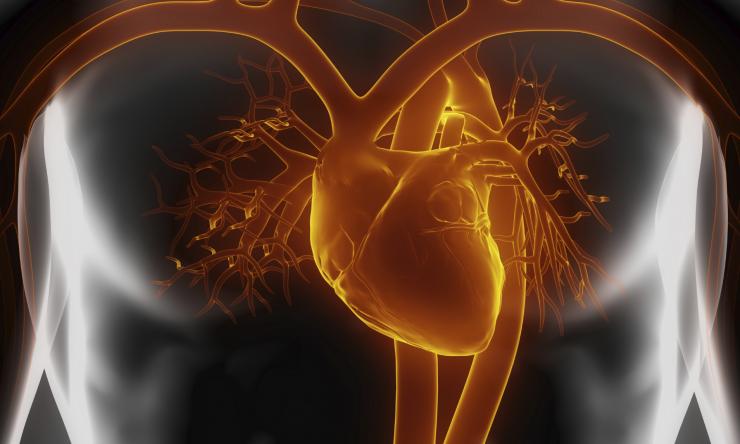Bone hormone, new treatment for heart rhythm disorder?
A hormone that helps regulate bone mass also is produced by the heart and could be a treatment for people with a dangerous heart rhythm disorder, according to new research from an international collaboration among Baylor College of Medicine, the University of Oxford, University of Montreal and University of Melbourne.
Until recently, the hormone calcitonin was only thought to be produced by the thyroid gland, with no known effects on the heart. Now, research published in Nature has revealed that cells in the upper chambers of the heart, known as the atria, produce approximately 16 times more calcitonin than cells in the thyroid.
Researchers at Oxford also found that the hormone plays a vital role in reducing atrial scarring. Such scarring makes it harder for electrical impulses to travel smoothly through the atria and can cause them to beat in a chaotic manner, known as atrial fibrillation (AF).
The researchers studied muscle cells from atrial biopsies taken from people undergoing heart surgery and found that they released calcitonin. Interestingly, cells from biopsies of patients with severe AF produced six times less calcitonin.
Looking further, they saw that the calcitonin receptor was present in atrial cells responsible for producing collagen, a major component of scar tissue. When the team treated these cells – called fibroblasts – with calcitonin the cells produced 46 percent less collagen.
Further experiments conducted at Baylor showed that mice that were unable to produce calcitonin in their hearts developed two-and-a-half times more atrial scar tissue compared to mice with normal levels of calcitonin. They also developed AF at a younger age and had approximately 16 times longer episodes of AF. Strikingly, atrial scarring and AF were completely prevented in mice whose hearts produced greater amounts of calcitonin.
“Our studies at Baylor, performed by talented postdoctoral scientists Drs. Mohit Hulsurkar and Satadru Lahiri, show promising results for a new type of gene therapy that increases calcitonin levels within atrial muscle cells. Restoring communication between muscle cells and fibroblasts within the atria could suppress scar tissue formation and limit the progression of AF,” according to Dr. Xander Wehrens, director of the Cardiovascular Research Institute at Baylor.
Being diagnosed with atrial fibrillation can significantly increase a person’s risk of stroke by promoting the formation of blood clots in the heart that may then travel to the brain and block blood vessels there.
Researchers now hope that this new heart hormone and its receptor may hold the key to treating this potentially devastating condition.
“For a long time we’ve known the heart only produces a small number of hormones, and we can now add a new one to the list. Discovering that calcitonin is released by the heart should open new doors for developing heart treatments,” said Dr. Svetlana Reilly of the British Heart Foundation at Oxford. “We now need to explore how we can best restore the actions of this hormone to treat people with AF, and to understand when the best time to treat someone would
be."
“These discoveries could be game-changing for the management of AF. Developing a new treatment to prevent or reverse atrial scarring could provide a lifeline to many people at risk of or living with AF,” said Dr. Metin Avkiran, associate medical director at the British Heart Foundation.
This study was funded by the British Heart Foundation (BHF) Intermediate Fellowship in Basic Science, by the Oxford BHF Centre of Research Excellence (CRE; RG/13/1/30181) Transitional Fellowship, BHF CRE Overseas Collaboration Travel award, the Medical Science Division Internal Fund, the Wellcome Trust Institutional Strategic Support Fund, the Oxfordshire Health Services Research Committee, the National Institute for Health (NIHR) Oxford Biomedical Research Centre and LAB282 grants (to S.R.); BHF Chair award CH/16/1/32013 (to K.M.C); by Canadian Institutes of Health Research (CIHR) and Heart and Stroke Foundation of Canada (to S.N.) and Fonds de Recherche en Santé de Québec (FRQS) & CIHR postdoctoral fellowships to A.T.











